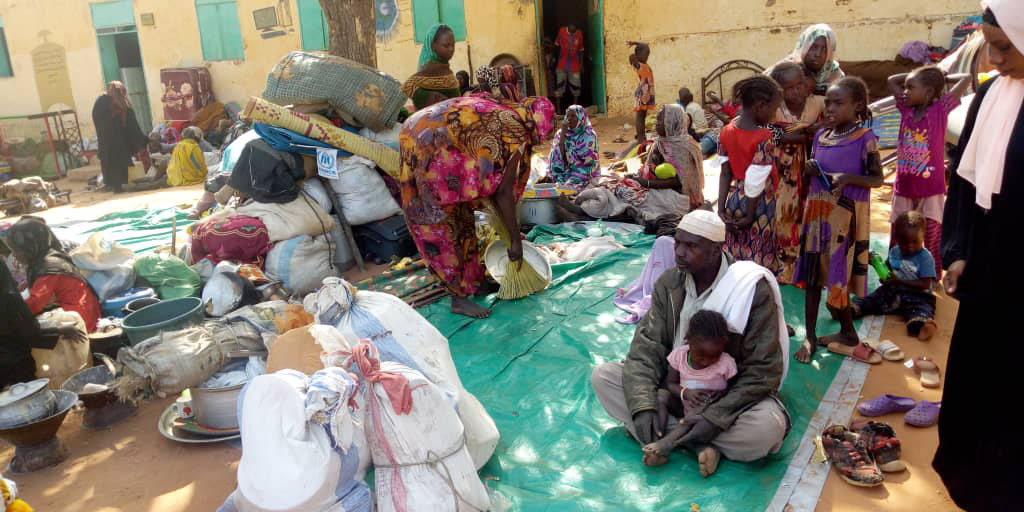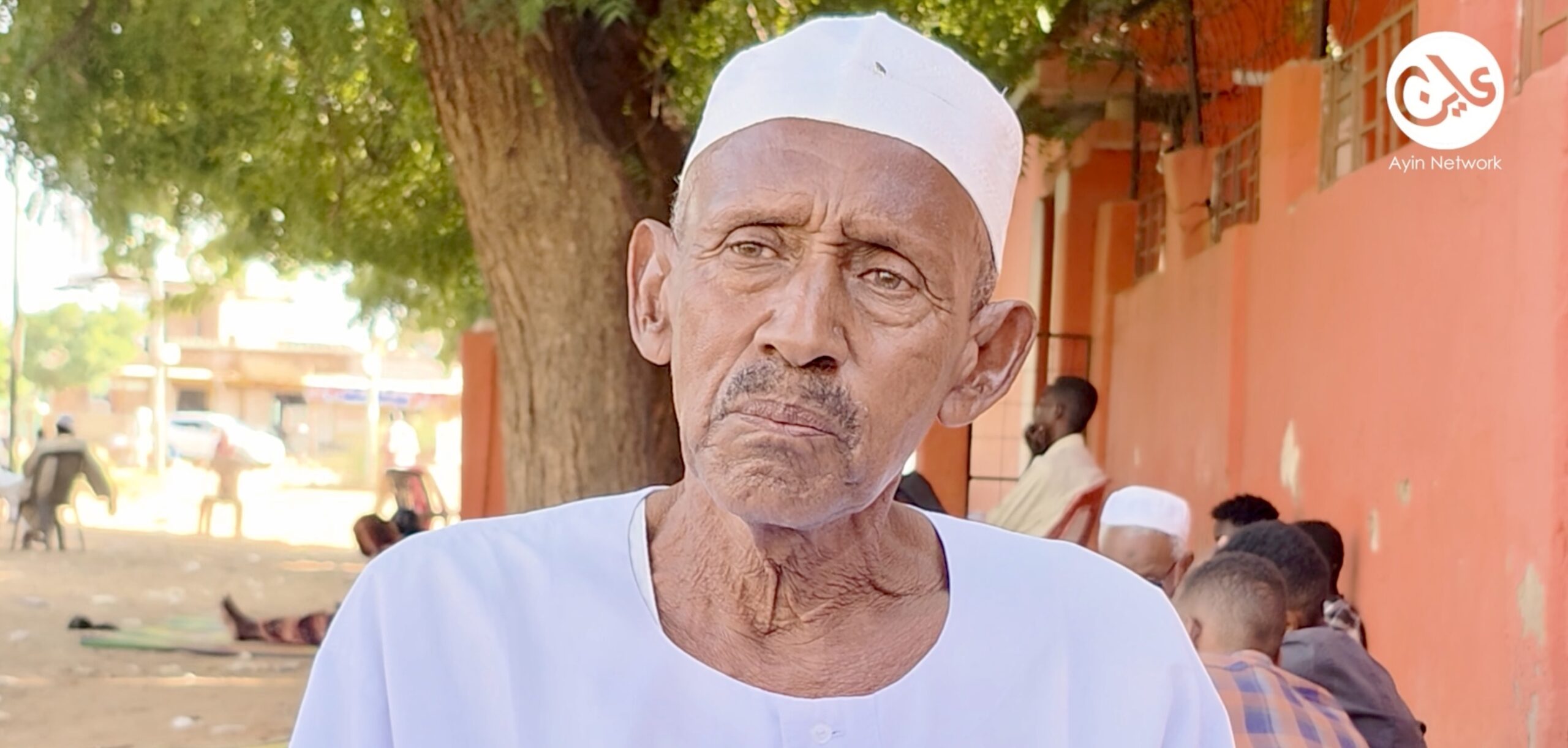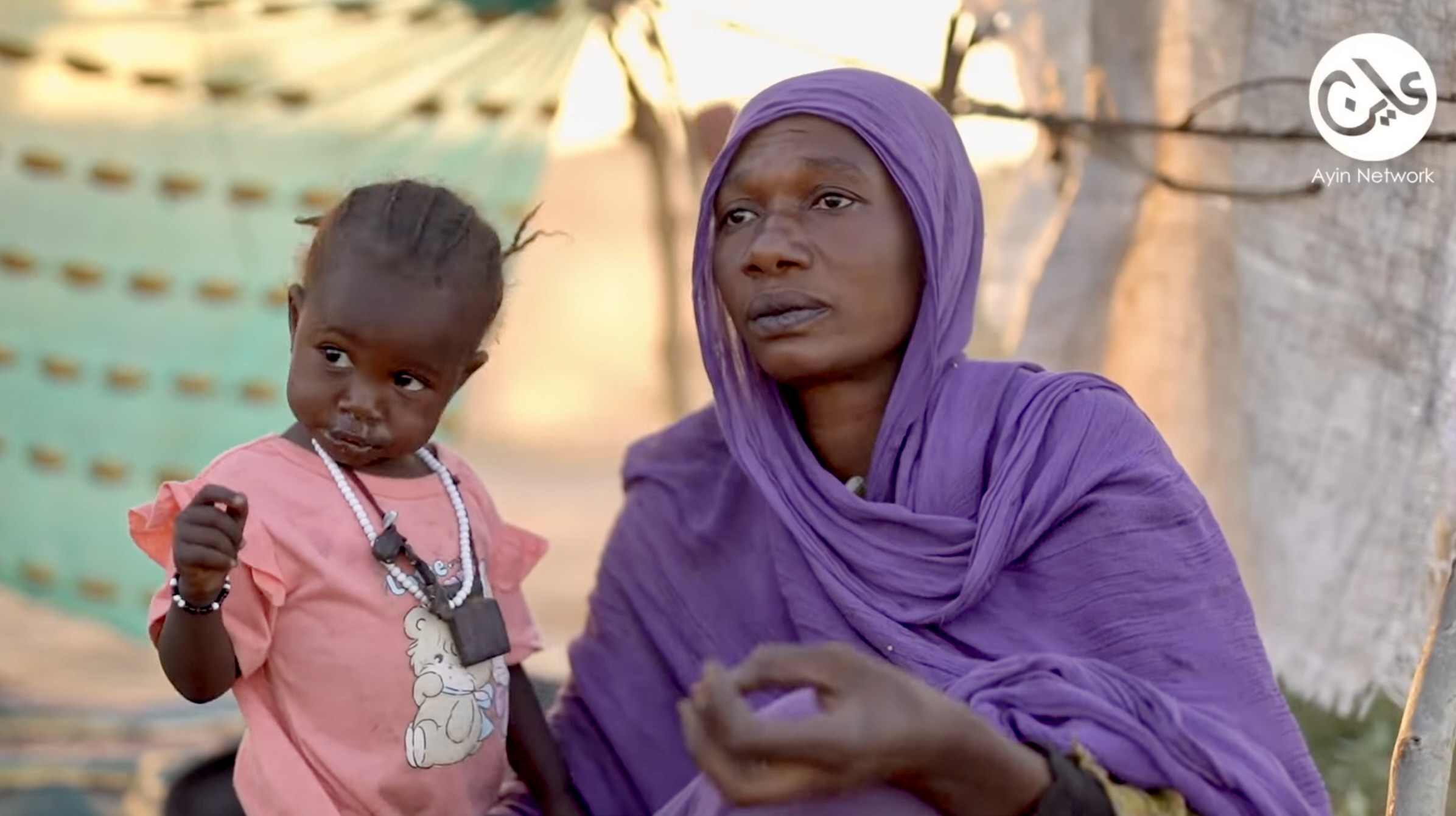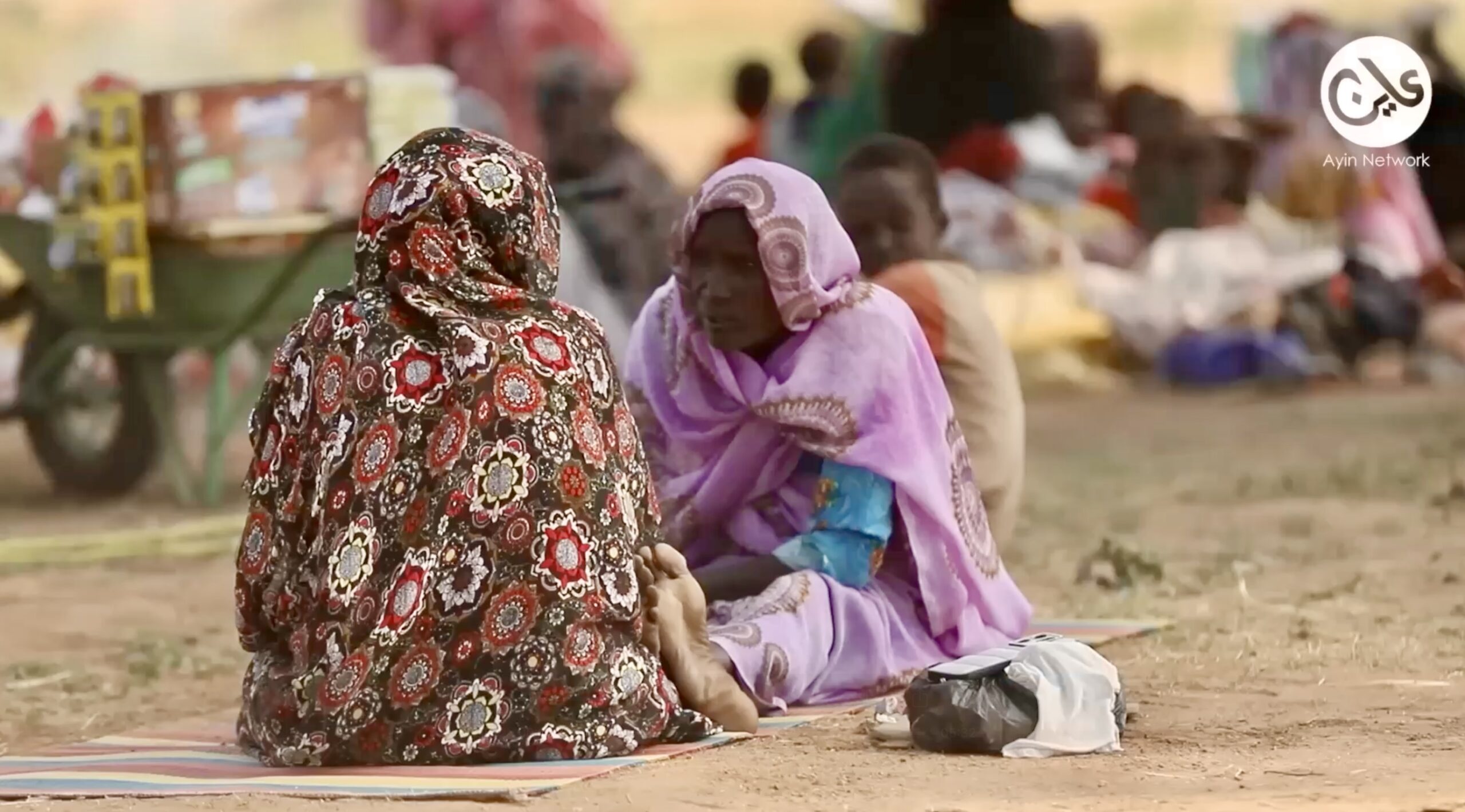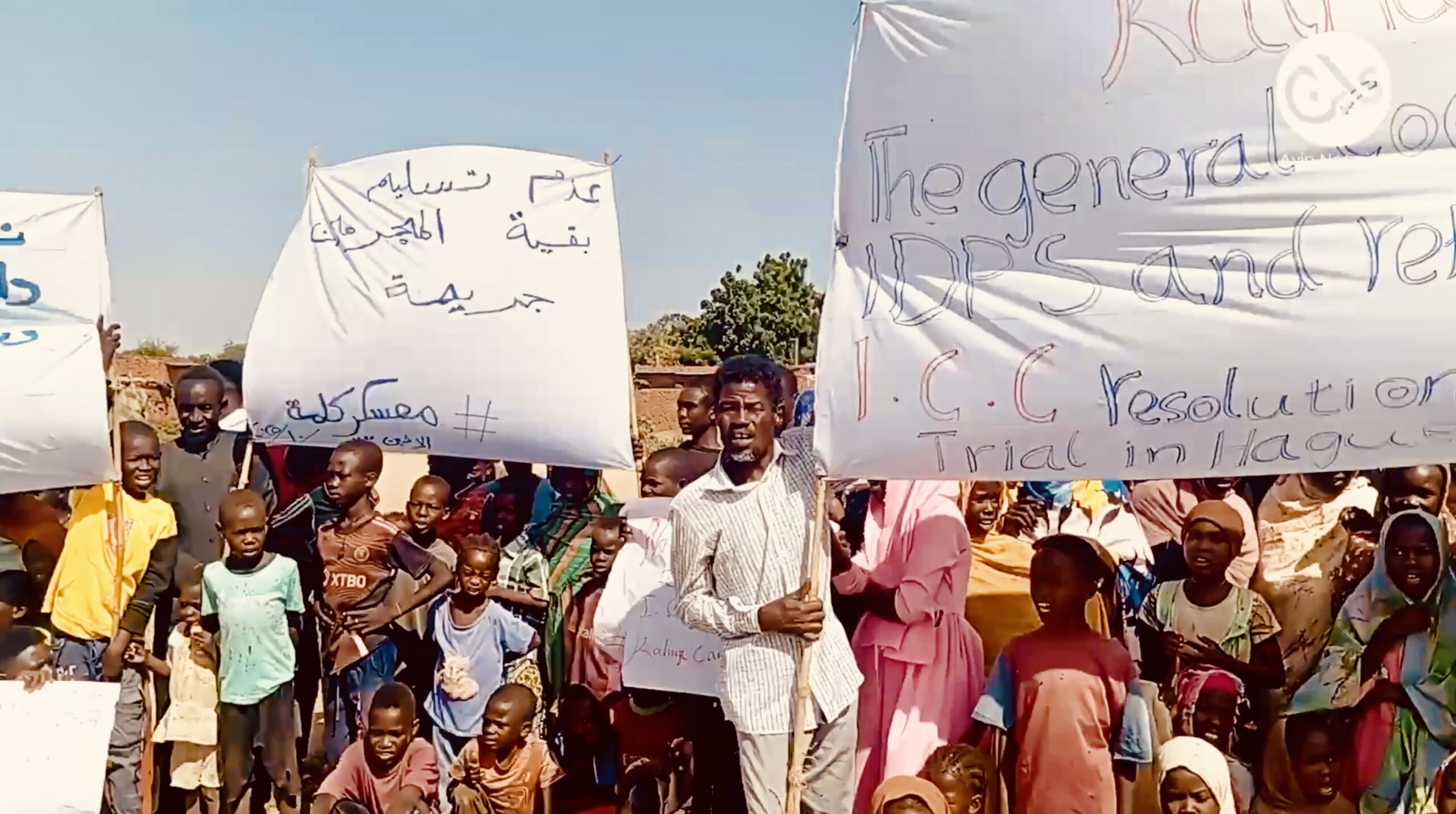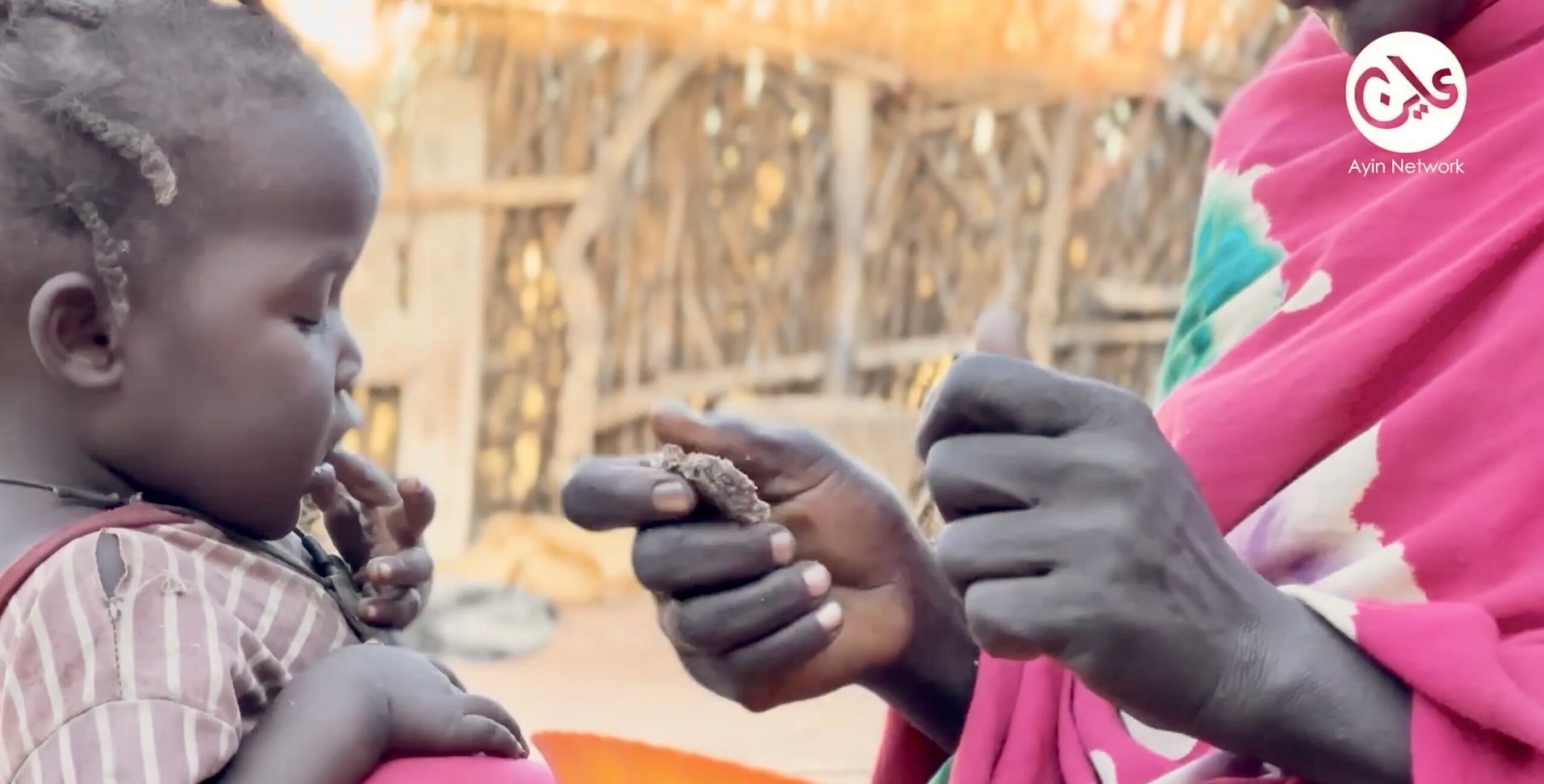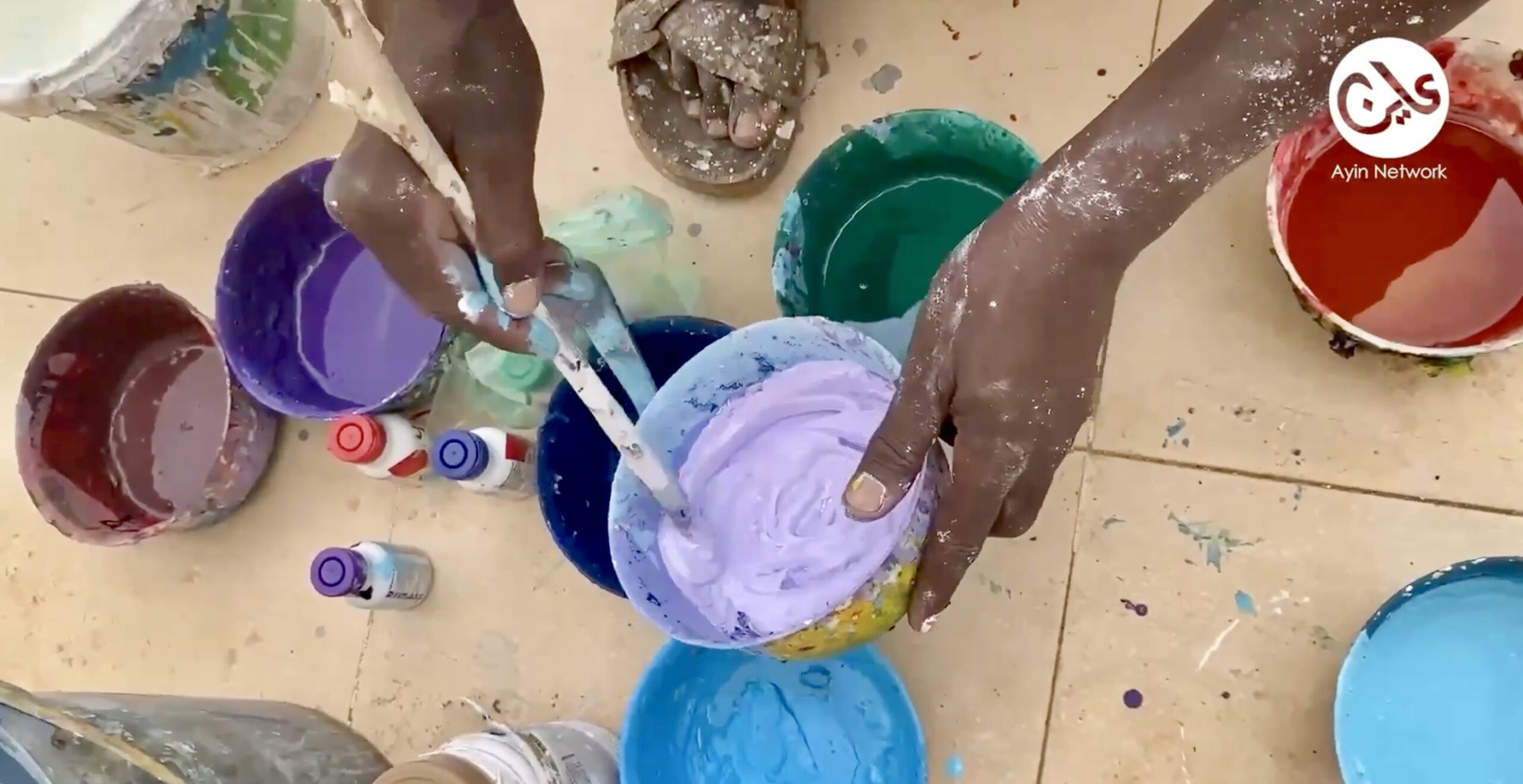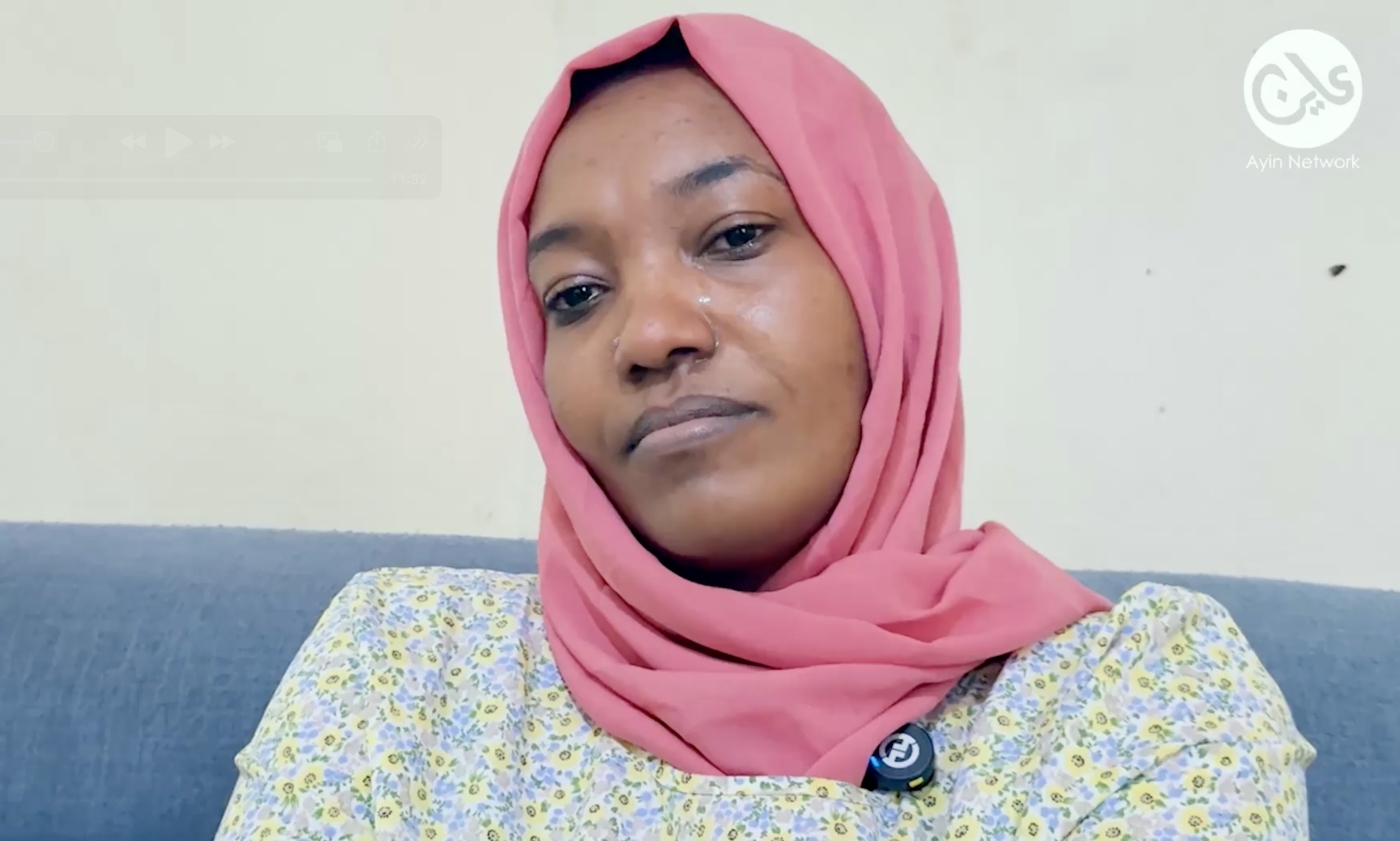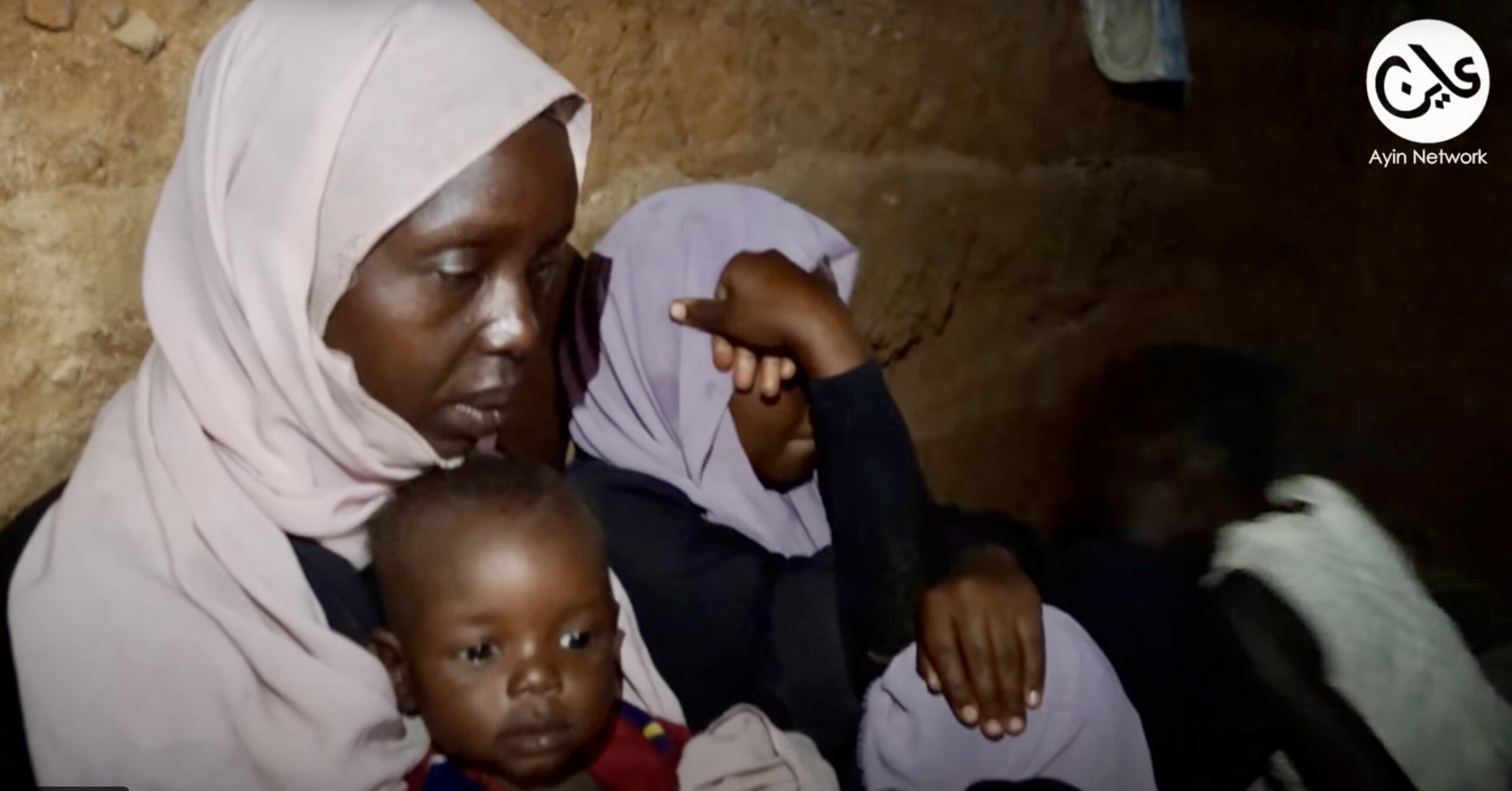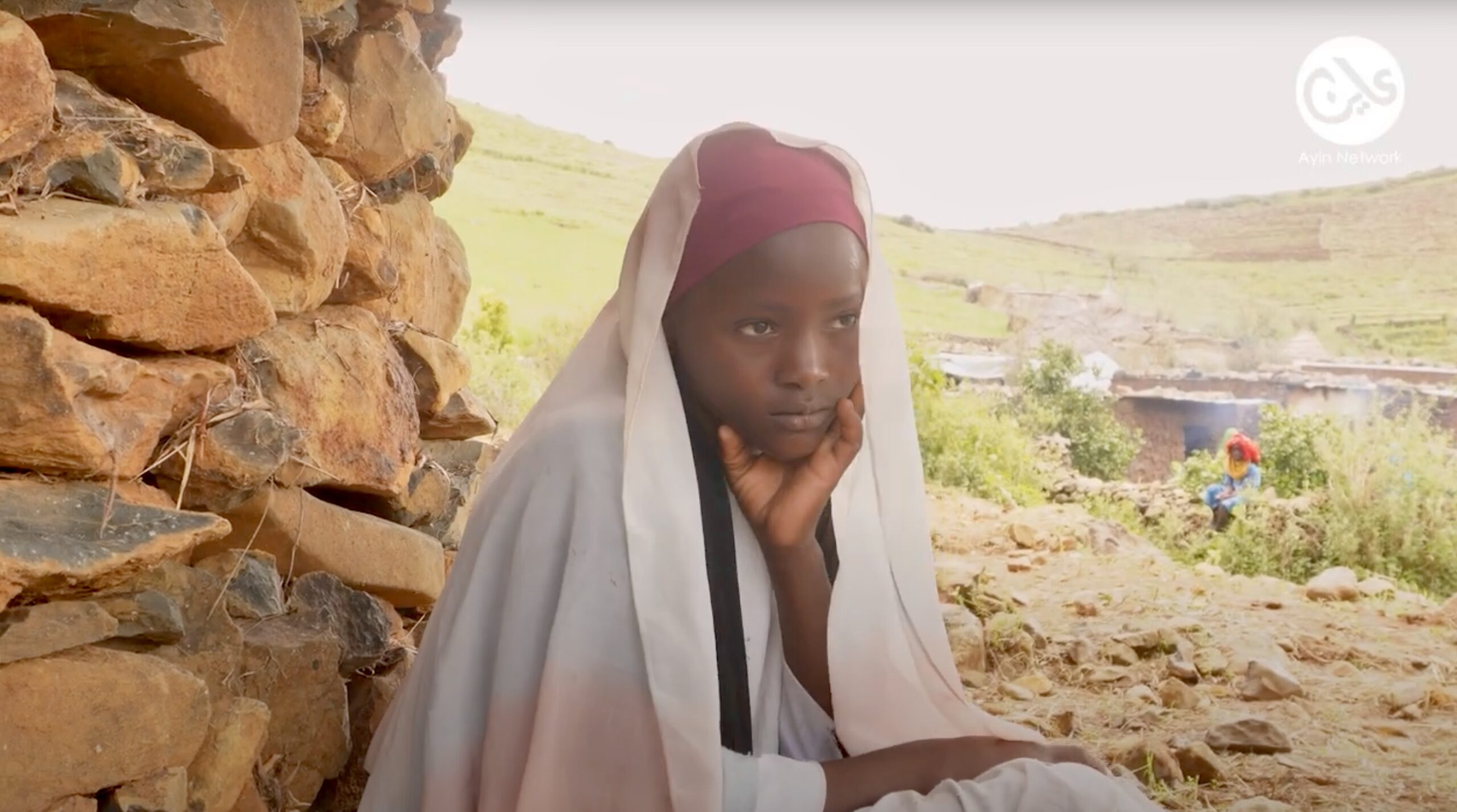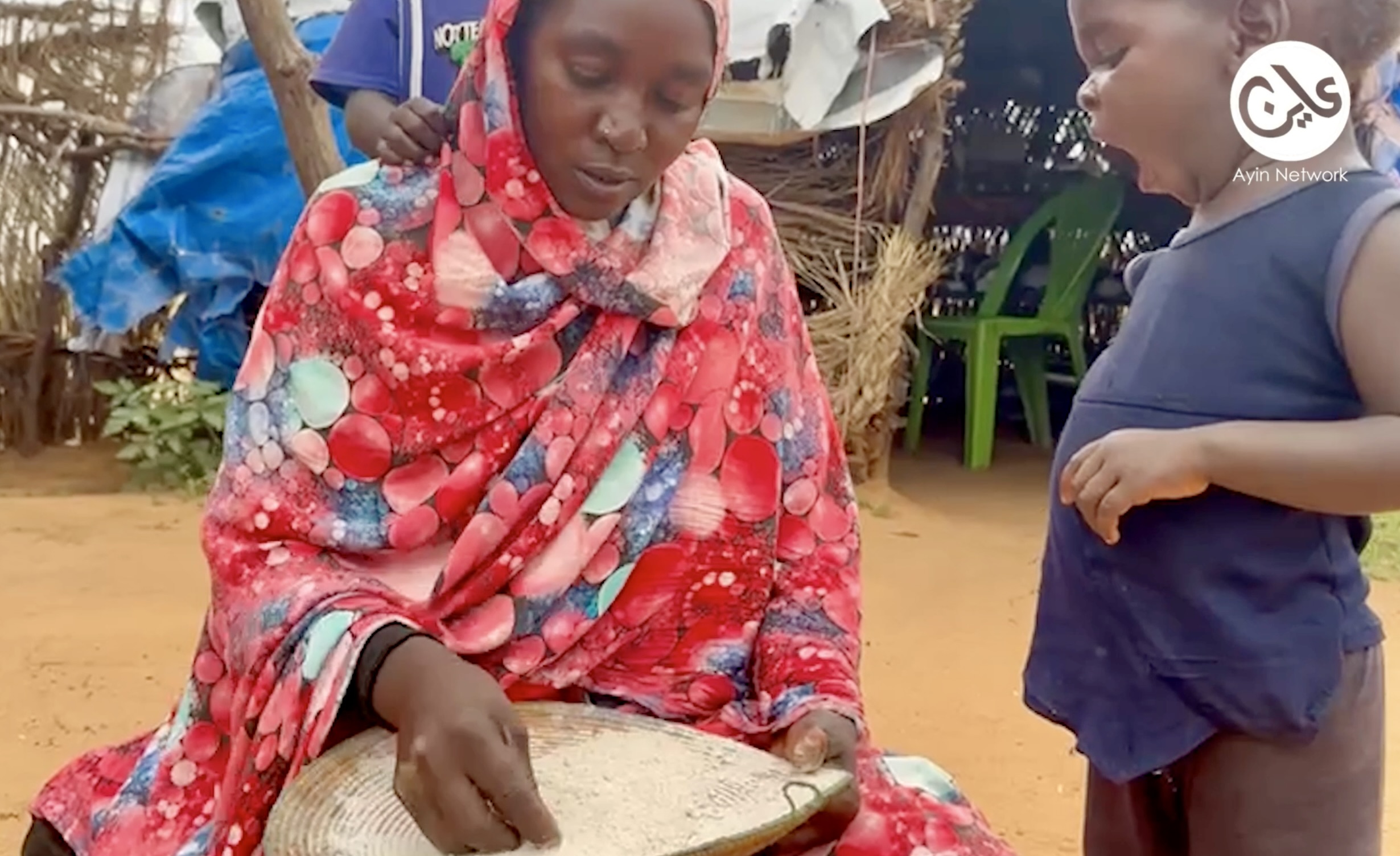Not tribal, but criminal: Geneina’s cycles of violence
21 April 2021
Life is slowly returning to what could be considered normal in the restive capital city of West Darfur State, Geneina. Eyewitnesses in Geneina told Ayin that residents are finally moving around relatively freely – some are even returning to the four neighbourhoods around the Hay Al Jabal area, where some of the worst fighting earlier this month took place.
Last Monday, a high-level, all-military delegation led by Sovereign Council Chair Lt. Gen Abdelfattah Burhan arrived with the Minister of Interior, Lt Gen Ezzeldin El Sheikh and the Director of Intelligence, Lt Gen Jamal Abdelmajeed. The resolutions made by the delegation resembled a stark, post-war treaty.
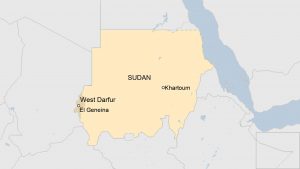
A trench is meant to be dug around the entire city to control armed elements entering and exiting Geneina while all armed groups –-the regular armed forces, the Rapid Support Force militia (RSF) and the former rebel group, the Sudan Coalition, are prohibited from moving within the city. The RSF guesthouse, based on the west side of the city, will be closed. Search and seizure of arms within neighbourhoods throughout the city would also take place, including the displacement camps.
Internally Displaced Persons (IDPs) from the Jabal and Abuzar Camps within Geneina criticized Burhan’s directive – citing the RSF as the main culprit behind the continual violence in the Geneina area. “The RSF paramilitaries should be immediately removed from West Darfur, as they are the main cause of the violence,” a statement from the Committee for Afflicted People said.
But not all residents of Geneina are opposed to the new regulations to keep armed groups out of the city.
“You have more armed people than civilians walking around Geneina these days,” said Omar Adam, a trader who was forced to run with his goods out of the market before the shelling became too intense. “Everyone has a gun, and everyone feels insecure, it is no wonder violence keeps coming.”
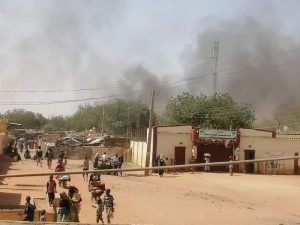
The Al-Jabal neighbourhood is divided ethnically where sections are predominantly inhabited by the Masalit tribe and others belong to the Arabic tribes. Each neighbourhood is heavily armed and backed by political and armed forces, residents said. “The Sudanese Coalition, the former rebel group led by Khamis Abkar which signed the Juba Peace agreement, sided with the Masalit while the Rapid Support Forces (RSF), sided with the Arabs,” explains Barima Muhammad Ali, a Geneina resident. After the fall of former dictator Omar al-Bashir in April 2019, Geneina and other areas have witnessed a rise in tension between communities, says Mohamed Babiker, the Director of Monitoring and Research for the Africa Centre for Peace and Justice Studies (ACJPS), an organisation that promotes human rights and legal reform in Sudan. “Their destiny and uncertainty developed on both sides after Bashir fell,” Babiker says. The Masalit had expected the region to be under their control once the former president was removed, only to see little change, while the Arab community began to fear displacement. Both sides armed themselves for an uncertain future.
Geneina’s latest conflict started Saturday evening on 3 April after Arab gunmen shot at Masalit tribesmen who were heading to Geneina city, killing two and injuring two others, according to eyewitnesses and a UN statement. Tensions quickly escalated from there.
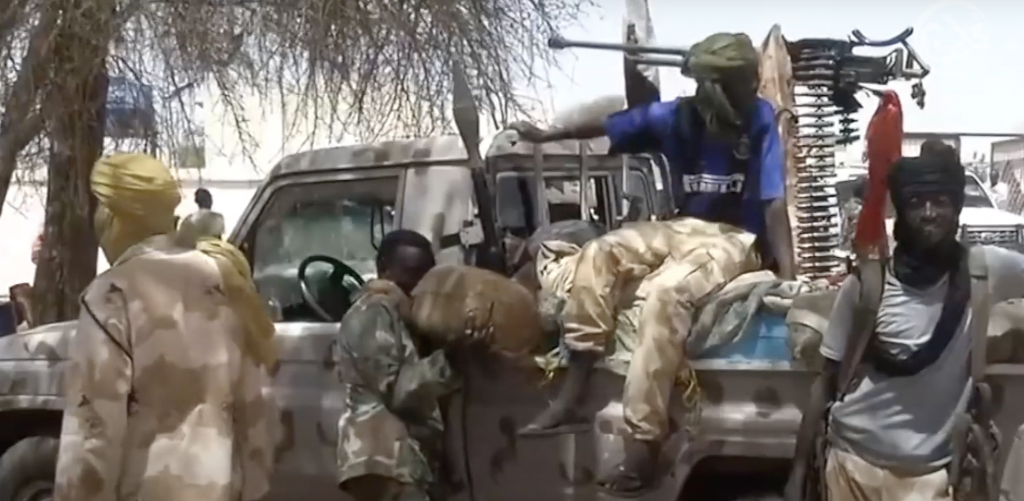
“What can I say? I was one of those who participated in the funeral of the dead on the first day of events,” said Muhammad Adam Abkar, a trader in Geneina. “During the burial of the two dead, there was a group of militias, with covered heads, moving in close proximity to the mourners. It was obvious that they were from the Arab militia. Upon our return to the city after the burial, we found that the clashes had developed more widely, especially in the southern and southwestern sides of the city –where many of the shelters for the displaced survivors of the attack on Krending Camp were living.”
By noon the following day, Easter Sunday, gunfire erupted in the Customs District and the Jabal and Souq neighbourhoods, residents said. Gunfire and heavy shelling lasted until evening. Army and police forces did not intervene throughout this period, guarding only the government buildings and banks, eyewitnesses told Ayin. After nearly five days of intense fighting, 144 people died and at least 233 were injured, according to the West Darfur Doctors Committee.
No state protection for anyone
“I currently live in the Jamhurrya neighbourhood in Geneina, like all the areas there has been no security since the outbreak of events,” says Asim Adam Haroun, a teacher from the Masalit ethnic community. “There is no protection from the government, but rather elements within the government are killing us.”
Musa Mohamed Musa is a health official in the state government whose family emanate from the Arab tribes. His family was also left unprotected. “Renewed conflict could happen at any moment. Fear and panic are the masters of the situation. This absence of the government –prompts us as citizens to think that Geneina is a city not suitable for the living.”
“Renewed conflict could happen at any moment. Fear and panic are the masters of the situation. This absence of the government –prompts us as citizens to think that Geneina is a city not suitable for the living.”
— Musa Mohamed Musa, State Health Official, Geneina resident
According to the General Coordinator of the IDP Camps in West Darfur, Ahmed Al-Sharif Ahmed, not only did the government fail to protect civilians, but it is also part of the problem. “It is inconceivable that large groups of militias loaded with ammunition from inside and outside the state could spread chaos for three days without the government’s knowledge or ability to resolve the chaos, considering the various security forces, including military intelligence based in the city. It confirms the continuation of policies under the former regime.”
In May last year, Sudan’s Ambassador to the United Nations assured the UN Security Council that “the post-revolutionary government is protecting civilians,” claiming peace and the protection of civilians was a cornerstone to the Constitutional Declaration signed by all parties that formed the new administration.
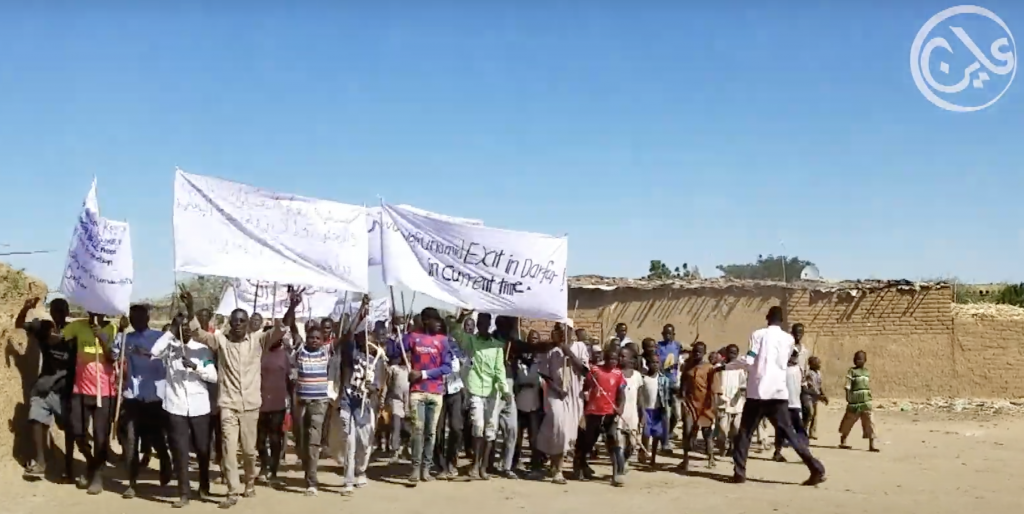
To uphold this, the government pledged to develop a security force that would replace the United Nations – Africa Union hybrid peacekeeping force, UNAMID, which declared its departure in October last year. It was a UN Security Council decision that received little support from Darfur’s vast and vulnerable IDP community.
The Juba Peace Agreement signed in October between rebel groups and the government stipulated that a joint force of soldiers would be deployed within three months of signing the agreement to replace UNAMID. Funding gaps and training preparations, however, led to delays, Sovereign Council member Mohamed Hassan El Taishi told the state press recently. Taishi believes a joint force of 3 – 5,000 would be formed by the end of this month.
The West Darfur State government were, according to sources, literally outgunned by the armed militias roaming the streets of Geneina. Even local government officials were left without military escorts, according to Taha Ahmed al-Nabur, the political advisor for state government. “There is no security in the state and we do not rule out the idea that the state government itself is exposed to assassination attempts, similar to the recent attack on the governor’s home,” Taha Ahmed told Ayin. The state political advisor is referring to an assassination attempt against the state governor’s life, Muhammad Abdullah Al-Duma, back in January where unidentified gunmen opened fire on his house. Heavy weapons were fired at the governor’s house on Tuesday evening, 19 January, after the official held a security meeting earlier in the day.
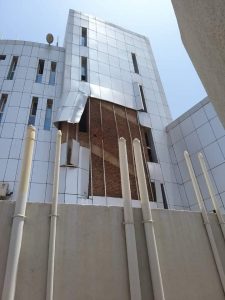
While no one felt secure, the impact of the violence was far worse for average civilians within Geneina, especially those already displaced from earlier violence in the area. Electricity supplies were cut off for ten days for residents and water became increasingly scarce during the conflict. A barrel of water now costs Geneina residents 2,000 Sudanese Pounds (roughly US$ 5.50) per barrel, Asim Ahmed said. A barrel of water would only last a family one day, he estimates. As a teacher who receives 11,000 Sudanese Pounds (US$ 29) per month salary, this is an untenable but necessary expense. Health services are also extremely limited. Gunmen shelled the Sultan Medical Complex and many government health employees were forced to flee the city. Around 15 doctors fled due to the insecurity, state health official Musa Mohammad said, leaving only 12 doctors in the entire city.
Repeatedly targeted, repeatedly displaced
Most of the victims of the April Geneina attack were prior victims to a January assault on the Krending IDP camps, just outside of the city, Taha Ahmed said. Many of those displaced in the previous attack tried to find shelter within public spaces in Geneina, in Al-Jabal, Surah and Tadamon neighbourhoods as well as the Abazar displacement camp located directly behind the main police station within Geneina. “Civilians live in tragic conditions around here – the situation has reached a point where [people] are displaced multiple times within their own homelands,” Ahmed added. “From their villages to the displacement camps and from there, shelters within Geneina city itself.”
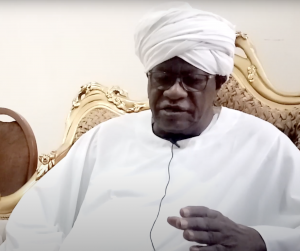
On 16 January, gunmen from the Arabic tribes attacked the two IDP camps outside of Geneina city, killing more than 160 people. According to a statement by the West Darfur Governor on 17 January, almost a third of the camps were reduced to ashes. “They have been burned again and again, despite being under the eye of the [central] government,” West Darfur Governor Al Duma told Ayin in January. The governor is convinced that the January attack was an orchestrated incident with links to the former regime. “They are agents and leaders of the National Congress Party (NCP), the ousted regime,” he said. “They have mobilised resources and money.”
The UN estimated 180,000 people had been displaced in the January attacks on the IDP camps.
The attack, like previous and future incidents, stemmed from a conflict between individuals on 15 January, whereby a Masalit man had killed an Arab man. “The massacre was not an isolated episode,” says former Krending IDP Mohamed Haroun Younis. “It is rather part of a recurring violence that seems to be planned.” Mohamed Haroun was forced to flee Krending Camp and seek shelter within Geneina city. “The government keeps assuring us of stability and security in the camps while the people keep suffering.”
January’s attack on Krending Camps and surrounding areas reflect what took place in December 2019. The same armed community attacked the Krending IDP camps for the same reason, the death of one of their own, displacing thousands and killing nearly 50 people.
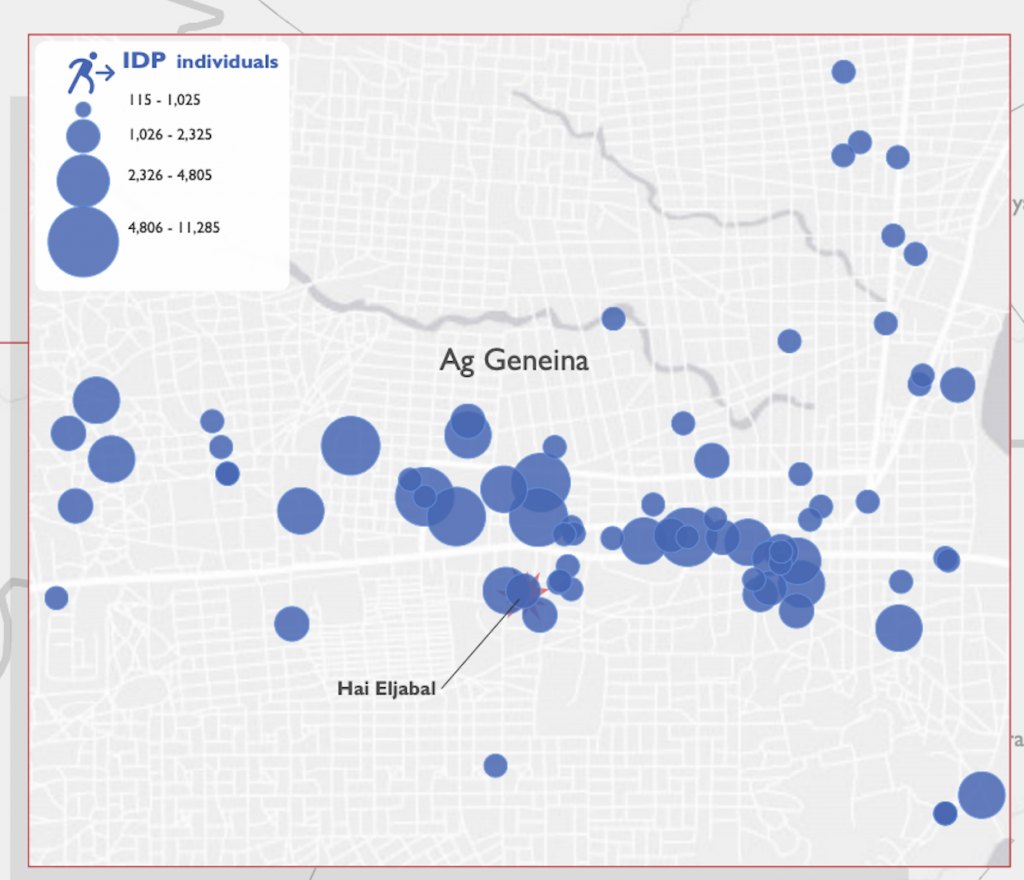
A pattern of displacement
This deadly pattern, where individual conflicts between conflicting ethnic groups escalate into an all-out confrontation, has gradually pushed the former residents of Geneina out of the region, even the country. “Most of these crimes against civilians [in Darfur] start with conflict between two persons,” says Ahmed Gouja, Regional Director of the Darfur Network for Monitoring and Documentation, a local human rights body that tries to keep track of the myriad of human rights abuses in the region. “Armed tribal groups always seize fertile lands by force of arms. When the original owners of the land return, they are assaulted, deprived of their land and expelled by force.”
A September 2020 joint UN-AU report on Darfur claimed Arab pastoralist tribes in Darfur were facing a series of challenges –from population growth, climate change and displacement—all affecting their ecological needs, especially access to water and grazing land. In some cases, the report said, this had led armed pastoralist groups to forcefully resettle in places of origin of internally displaced populations. Land related conflict, predominantly involving crop destruction by pastoralists, remained almost constant in 2020, the AU-UN report said, with 134 incidents between June and October last year. “We see that this is an attempt to expel the indigenous people to other regions and some neighbouring countries so that the militias can control the city,” Ahmed Al-Sharif told Ayin. “Now they have established model villages after the residents fled to the camps.”
But, like many conflicts in Darfur, the perpetrators of the violence remain opaque. Geneina residents from Arabic tribes tell Ayin of their concern over growing rhetoric among their Masalit neighbours of the land ‘belonging to them’, with little consideration to those from different communities who have resided among them for decades. Instead, Musa Mohamed says, both ethnic groups are pawns in a larger political chess game. “Arab and Masalit are all victims, who have been used to escalate conflicts in the state.”
Not tribal, but criminal
This is why the IDP community in Geneina rejected Burhan’s recent measures to hold tribal reconciliation meetings to resolve the issue, a measure that has repeatedly failed to incur peace. The policies of reconciliation and bargaining, according to the statement by the Committee for Afflicted People, are ineffective since the problem is “not tribal” but “a criminal case” where the rule of law must be applied. Musa Mohamed agrees. “The solution methodology followed by the government in reconciliation conferences do not address the core of the problem but provide guarantees for conflict renewal. A real solution lies in strengthening law enforcement, bringing those involved in the events to justice.”
Hopes for justice for the residents of Geneina, however, appear slim. A member of the Hight Committee for the Management of the West Darfur Crisis, Kamal el Zein, has criticized Attorney General Tag el-Sir el-Hibir for not lifting the immunity of RSF forces accused of participating in the January attacks against the Krending IDP Camps.
According to the West Darfur Governor’s political advisor, eight IDPs who were witnesses to the earlier December 2019 attack against the IDP camps have been killed.
Without justice, various armed groups will continue to act with impunity, Taha Ahmed told Ayin. This will lead to the further escalation of conflict in the restive Geneina area, he says. “If the state does not implement justice, people will proceed to implement their own ideas of justice –-revenge.”




